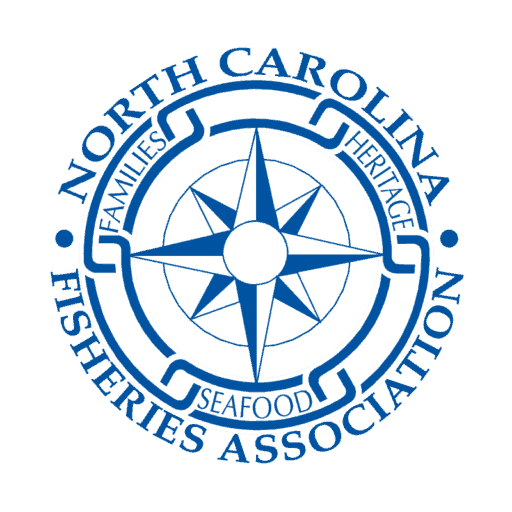LEGISLATIVE UPDATE:
ELECTION 2020:
Just in case you missed it, there is a rather important election coming up in a little over a month! I’ll just say it’s VERY important rather than use the phrase that we hear just about every time we head to the polls. We’ve got it all on this year’s ballot starting with the race for President/Vice President, Governor/Lt. Governor, US Senator, all US Representatives, all NC Senators/Representatives and several members of the NC Supreme Court, including the Chief Justice. On top of that, some will have local races as well.
As a reminder, NCFA does not endorse candidates and does not have a Political Action Committee or PAC. That does not remove the ability, actually the responsibility, of those involved in commercial fishing to support the candidates of their choice individually. Have YOU supported any of those that have shown support for your way of life? You don’t have to go to a fund raiser or a rally, although I encourage it, but you can simply write a check for a personal contribution. The check cannot be a company check because only personal contributions are allowed, but it’s a rather easy thing to do. It doesn’t have to be a lot of money either. Checks of $10 or $15 are very important to any campaign because it’s just the idea of showing support that is crucial.
In the race for Governor of our state, Democrat Roy Cooper has a record, such as Marine Fisheries Commission appointments and helping with disaster assistance that you can look at for guidance. Challenger Republican Dan Forest, as Lt. Governor, presided over the Senate when the disaster assistance was approved by that body. He released a statement on fisheries this week, which is copied below.
Our intent at NCFA is to give you as much info as possible but also encourage you to do your own vetting of all candidates, and support those that support you.
God bless,
Jerry
DAN FOREST STATEMENT ON FISHERIES:
“When Dan Forest is Governor, he will work together with every stakeholder in coastal fishing and will build a consensus that has been lacking over the last decades. That is what a leader does.
We will work together to solve the issues that have torn apart commercial, recreational, and charter fishers. We will have a thriving and profitable commercial fishing industry. We will have the best recreational fishing environment on the east coast. Our charter fishermen will have record profits.
We will start by totally revamping the Marine Fisheries Commission and ensuring that there is equal geographic representation on the Commission and equal interest representation — including commercial, recreational, and charter fishing interests. Consensus will become not only a goal but a reality when the new Marine Fisheries Commission begins its work.
North Carolina has some of the best coastal fishery resources in the country, and by building consensus — where everyone has a seat at the table — we will make coastal fishing in North Carolina great again.”
DISASTER RELIEF STORY
Here is a link to the Carteret News Times story about NCFA’s recent hurricane relief efforts:
https://www.carolinacoastonline.com/news_times/article_2f1a7374-f911-11ea-acf3-cf770d93867b.html
INSPIRATIONAL MESSAGE
In the latest edition of Tidelines published by the Coastal Conservation Association (CCA) they shared an “inspiring message” written by one of their members crediting the “net free zones” in the Neuse and Pamlico Rivers for the good fishing he experienced this past week. In the introduction the CCA mentioned “that the Department and DMF have not always agreed with some of the conservation efforts implemented by the MFC” but failed to explain why. The truth is there was no science to support removing gillnets from the upper Neuse and Pamlico Rivers, as DMF Director Steve Murphey explained to the MFC, but five of the nine Commissioners chose to ignore the science and approved the net ban. (http://portal.ncdenr.org/c/document_library/get_file?p_l_id=1169848&folderId=32880345&name=DLFE-140210.pdf)
In a pitiful attempt to discredit the best available data, provided to the Commission by the DMF, Commissioner Pete Kornegay stated “it’s obvious that the low level of gillnet observer coverage results in a lack of information that would be called reliable.”
He then presented data from 1972 to 2002 to support his arguments for implementing a net ban. That is right he excluded the last 16 years of data due to a low percentage of gillnet observer coverage and based his argument on old data with no gillnet observer coverage!
To make matters worse he stated on the record that he hadn’t received the data until 8:53 pm the night prior to the meeting. Now keep in mind that several days earlier five commissioners had requested this special meeting seeking to force Director Murphey to ban gillnets in the upper Neuse and Pamlico Rivers based on data they apparently had not yet received!
Director Murphey and his staff did an excellent job explaining and often defending their data, the data collection process, Striped Bass mortality studies and the current gillnet restrictions that resulted from these studies but it was no use the five commissioners needed to pass the ban already had their minds made up. The net bans were implemented in the spring of 2019 and by the February 2020 MFC meeting a small group of anglers were praising the Commission for creating the best fishing they had ever experienced.
At that time David Sneed, Executive Director of the N.C CCA, acknowledged that the net bans could not be responsible for the abundance of Striped Bass, Red Drum, and Speckled Trout but now, only six months later, he claims “that the net free zones implemented in 2019 are helping protect our fish stocks.”
How are the gillnet bans protecting our fish stocks? Statewide gillnets only account for 10% or less of the Speckled Trout and Red Drum removed from NC waters. Striped Bass harvest has been prohibited in the central management area and dead discards in the gillnet fishery only removed around 1000 stripers annually.
When you consider the limited impacts gillnets are having and the magnitude of directed recreational effort on these three species you have to acknowledge that the slightest increase in recreational effort would recoup any fish lost to commercial fishermen.
The “trout fever” mentioned by Stu in his “inspirational message” resulted in 1,937,250 (3,334,163 pounds) trout being harvested recreationally in 2019 and an additional 700,000 dying as a result of discard mortality. This increased mortality certainly absorbed any potential benefits the net bans may have had.
The fact is the MFC could have completely banned the commercial harvest of speckled trout in 2019 and a mere 10% increase in recreational harvest would have recovered every trout given up by commercial fishermen. The truth is gillnet bans do nothing to protect fish and were never intended to. Gillnet bans like gamefish bills simply reallocate the resource from one user group to another without reducing harvest or protecting spawning stocks.
Knowing this you have to ask yourself what exactly is the CCA trying to protect these fish from?
On multiple occasions I’ve heard David Sneed say fish are too valuable to catch just once. This is a sneaky or “Sneedy” way of saying fish are too valuable to be harvested!
That’s right the CCA’s mission is to convince the public that the true value of our fisheries resources is not as a source of food but rather as a source of recreation.
Now don’t get me wrong, fishing purely for fun has significant social and economic benefits but so does fishing for food. The CCA constantly points out that our fish stocks are a public trust resource but never mentions that a significant percentage of the public trust North Carolinas commercial fishermen to responsibly harvest seafood on their behalf. Stu summed up the CCA’s position when he wrote “make no mistake, our main problem is overfishing with gears that are allowed in areas where they should never be.”
This tactic is as old as mankind and has been used to justify such atrocities as slavery and the holocaust. Convince the majority they are morally superior and with the majority behind you there’s no one left to defend the minority! But why should you care?
Afterall there’s only a couple of thousand active commercial fishermen left in North Carolina.
As commercial access to the resource decreases so does the supply of seafood
Decreased production limits consumers access and increases prices to the point that many can no longer afford fresh NC seafood.
When commercial harvest has been virtually eliminated and the fish stocks decline, and they will, the only way the CCA can protect catch and release fishing will be to once again reduce or eliminate recreational harvest.
By the time the majority of the public realizes that their public trust resources no longer belong to them the CCA agenda will be complete and it will too late!
Glenn Skinner- NCFA, Executive Director
252-646-7752
glennskinner@ncfish.org

